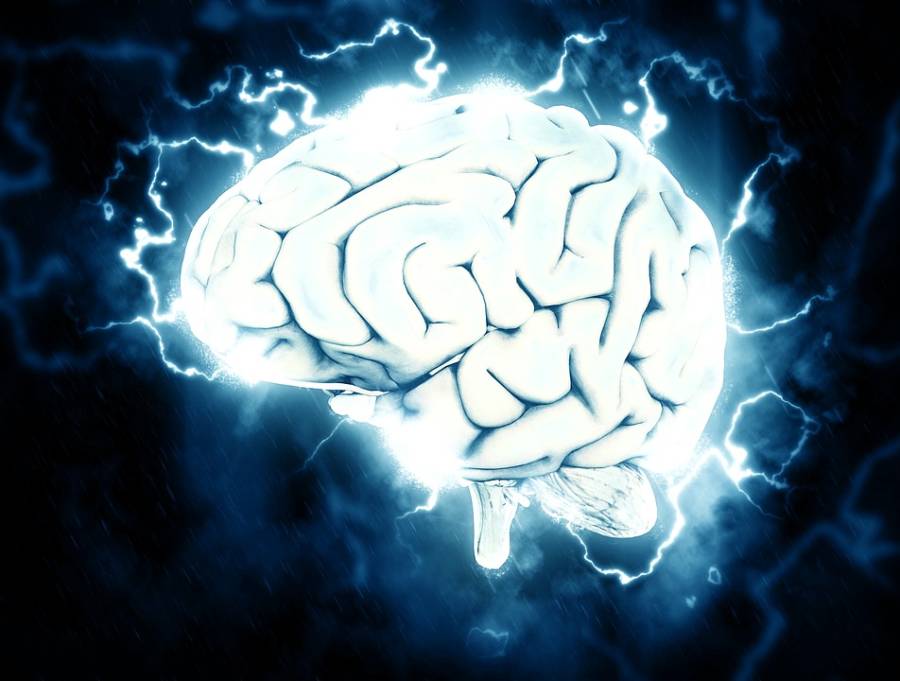Exploding head syndrome (EHS) is a little-understood medical condition that afflicts upwards of 15 million people.

Max PixelA man clutching his head.
Welcome to the world of exploding head syndrome. No, it’s not about your head expanding so much that it blows up and shatters into a million bloody pieces.
Exploding head syndrome, also known as EHS, is an actual psychological disorder that may seem bizarre — but it’s more common than you think.
Though the exact number of people who experience EHS is unknown, experts have estimated that it may affect as much as 10 to 15 percent of the world’s population. That means between 30 and 50 million may suffer from this malady in the United States alone.
What Is Exploding Head Syndrome?

Pixabay
The American Sleep Association characterizes EHS as the perception of loud noises, often a bang, bomb, gunshot, explosion, or cymbal crash, as a person falls asleep or begins to wake.
The sounds last for just a few seconds, but anyone with EHS will tell you it’s quite jarring — and not what you’re looking for in a good night’s sleep.
The experience varies from person to person. For some, EHS involves a crescendo of noise that ends in an explosion of sound that vanishes as quickly as it started. For others, the noise is accompanied by a startling flash of light — they describe the visual and auditory experience as not unlike a lightning strike.
Some report tingling sensations, like a light electric shock or a rush of heat, in the moments before the auditory hallucination begins.
For a few, the sound is accompanied by a sudden stab of pain, like a five-second headache. For most, however, the experience is physically painless; the brain simply perceives a sound or a light that isn’t really there.
For those who have EHS only occasionally, perhaps once every few months, the experience can be anything from novel to mildly irritating. But for those who find themselves having repeated attacks, EHS is no laughing matter. It’s frightening and disorienting — and can have a detrimental effect on sleep patterns and habits.
What Causes Exploding Head Syndrome?

Max PixelThis is your brain on EHS. Just kidding.
Many who experience EHS go undiagnosed — which is no surprise, given the paucity of information about the condition.
Researchers do know that women are slightly more likely to suffer from this disorder than men, and the onset of exploding head syndrome usually occurs after the age of 50, though this isn’t a rule; there have been cases of children who experience EHS too.
Beyond that, much about EHS remains a mystery. Doctors still don’t know what causes these “explosions” in people’s heads. Scientists theorize EHS may come from small seizures in the temporal lobe — the part of the brain responsible for perceiving sounds.
Some have hypothesized that this disorder comes from shifts among the components of the middle ear, while other researchers suspect malfunctions in the brain stem or abnormal calcium cycling in the nervous system.
One outlandish idea perpetuated by conspiracy theorists is that EHS is part of a government experiment that involves energy weapons. (Though science doesn’t yet have a definitive answer, it’s probably not going to be this one.)
Exploding Head Syndrome And Its Ties To Other Sleep Disorders

Pixabay
Some of the most interesting research into EHS has looked at the condition through the lens of other sleep disorders.
Some suspect EHS might be related to isolated sleep paralysis, a condition that causes sleepers to wake suddenly and find themselves unable to move for a few minutes. The overall rate of exploding head syndrome among people with isolated sleep paralysis is double or triple that of the ordinary population.
Since stress, anxiety, and being overtired seem to trigger more frequent episodes, some doctors have pointed to problems with how the brain shuts down on the way to sleep. The brain naturally turns off the senses of sight and hearing during sleep, but in cases of EHS, it may not turn those circuits off properly.
This is what happens with the hypnagogic jerk that many sleepers experience. “Hypnagogic” refers to the state immediately preceding sleep, and the hypnagogic jerk is the involuntary muscle spasm or twitch that wakes you up just as you were about to drift off.
For some, this is accompanied by a falling sensation — or occasionally auditory and visual hallucinations, like bright lights and loud noises, just like people with EHS experience.
This has led some to conclude that EHS is the result of neurons misfiring during the body’s transition from wakefulness to sleep.
Some evolutionary-minded scientists have proposed that there might once have been an evolutionary advantage to a neural fire-alarm system. Human primate ancestors would have lived much of their lives in trees — and the relaxing of the muscles, especially in a stressed creature, could signal to the brain that its body was about to nod off in a dangerous spot.
How To Get A Good Night’s Sleep If You Have EHS

Pixabay
Think you might have EHS? If your episodes are infrequent, your doctor may advise you to make the best of things; there isn’t an established cure for the disorder. Most people who have EHS don’t require medication or treatment.
But if you find you’re one of the unlucky people who have trouble sleeping due to EHS, keep a sleep journal so you can report on the frequency of your attacks or ask your doctor about a sleep study.
He or she might take a closer look at your current medications or prescribe a tricyclic antidepressant that slightly alters the brain’s chemistry — a medication that some with EHS have found helpful. Calcium channel blockers have also proved effective in early studies.
If you’re hesitant to try mood- or brain-altering medications, try relaxation exercises to target the stress that can exacerbate the disorder. A regular sleep routine, meditation, and yoga before bed help some with EHS manage the frequency of their episodes.
And the best news is that for many, EHS goes away all on its own. So a good night’s sleep might be closer than you think.
After learning about exploding head syndrome, read why Portugal has preserved the head of 19th-century serial killer Diogo Alves. Then, meet Phineas Gage, the man who survived a three-foot spike through the head.




